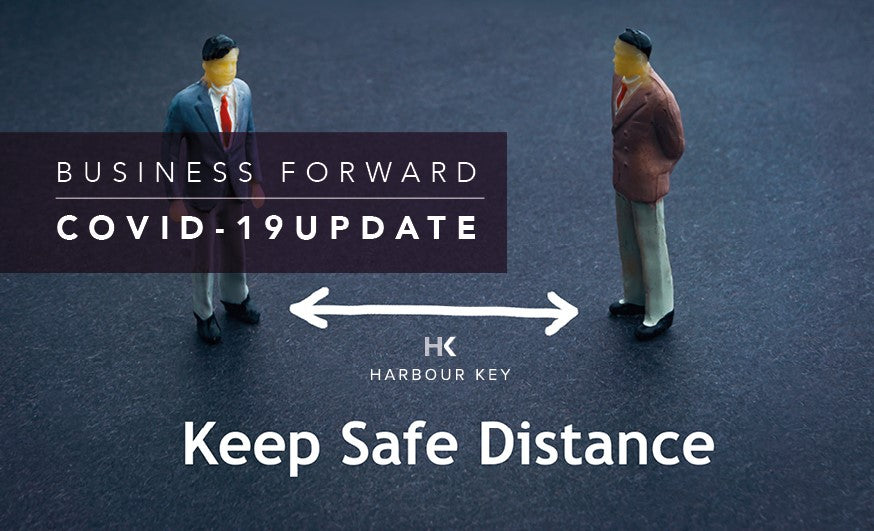
This update is written and posted on 1 November 2020 and is likely to quickly become out of date. We will endeavour to update information as it becomes available.
Previous updates and other useful information can be found at our WEBSITE.
As the Government has announced a second national lockdown in England to tackle a surge in coronavirus cases, previous business and personal financial support measures have been extended.
The new restrictions will mean that in England pubs, restaurants, non-essential shops and gyms will all have to close for four weeks from Thursday (5 November), until (at the moment 2 December), while holidays in the UK and abroad will not be allowed.
Job Retention Scheme (aka Furlough Scheme)
The furlough scheme, which was due to close 31 October, has been extended for a further month to cover the period of the new restrictions. The new Job Support Scheme which was due to replace the furlough scheme (as we reported on last week) is postponed until the furlough scheme ends.
At the time of posting this article, full details of the extended furlough scheme are still to be released, HMRC’s website still showing that the scheme is closed. What we do know is based on a Government press release, link below, issued Saturday night, but the scheme looks very much like the flexible furlough scheme in place in August:
- The scheme is available to all employers across the UK, even if they haven't used the scheme before, or the employee hasn’t been furloughed before;
- The furlough scheme will now run until December. No exact date provided for its end;
- Employees can be on any type of contract. Employers will be able to agree any working arrangements with employees i.e. either full furlough, or part-time working;
- Employers can claim the grant for the hours their employees are not working, calculated by reference to their usual hours worked in a claim period. The calculations will broadly follow the same methodology as used previously;
- When claiming the grant for furloughed hours, employers will need to report and claim for a minimum period of 7 consecutive calendar days. Employers will need to report hours worked and the usual hours an employee would be expected to work in a claim period;
- Employees on furlough will continue to get 80% of their salary, up to the limit of £2,500 per month. The Government will pay the employee’s salary for hours not worked, the employer having to cover the NIC costs and pension contributions, as well as hours worked at normal contractual rates;
- For an employee to be eligible, they must have been on the employer's PAYE payroll on 30 October to be eligible, i.e. the employer must have made an RTI submission;
- Employers are still able to choose to top up employee wages above the scheme grant at their own expense if they wish.
Employers need to agree with their employees the furlough arrangement, why they have been selected, documenting the discussions and recording the agreement with the employer contractually. As we have stated through-out the life of the furlough scheme, it is important to document the actions taken, and keep records of claims made.
Grants
- For properties with a rateable value of £15k or under, grants to be £1,334 per month, or £667 per two weeks;
- For properties with a rateable value of between £15k-£51k grants to be £2,000 per month, or £1,000 per two weeks;
- For properties with a rateable value of £51k or over grants to be £3,000 per month, or £1,500 per two weeks.
Grants are operated via Local Authorities, and for those businesses in areas who were not in tier 3 restrictions, will need to wait for their Local Authority to put in place a process for grant applications.
Mortgage payment holidays extended
The Government's also announced that mortgage payment holidays are to be extended, again this was due to end 31 October.
Full guidance from the FCA awaited, but based on the previous announcement:
Borrowers who've not yet taken a payment holiday will be able to request one from their lender. Borrowers who've already started a payment holiday will be able to extend it.
New and extended mortgage holidays do not impact your credit report, provided you apply for the holiday. It is missing payments that impact your credit record, although some lenders are asking on applications if a holiday has been taken.
The full Government announcement on the measures, can be found at HERE.
Self-Employed
There were no specific measures in the announcement for the self-employed. Currently those self-employed who are eligible can claim under the third phase of the taxable self-employed income support grant.
The eligibility criteria and calculation will remain the same as in the previous two grants, the grant covering November to January and will be valued at 40% of average monthly profits over last 3 years (16/17, 17/18 and 18/19) up to a maximum total of £3,750 (or £1,250pm).
The online service for the next grant will be available from 14 December 2020.
Bounce Bank Loans (“BBLS”) & Coronavirus Business Interruption Loan Scheme (CBILS)
Both these Government backed loan schemes, with low interest and generous repayment terms are still available, but at the moment end 30 November 2020. The CBILS application can take a period of time due to the information required, so with the impacting of the pandemic continuing, consideration should be given to seeking a loan to assist with cash flow in the winter period.
If you have applied for a BBLS and now feel a CBILS would be more appropriate as a result of the new measures, then you can roll the BBLS in to a CBILS arrangement.
|
|




